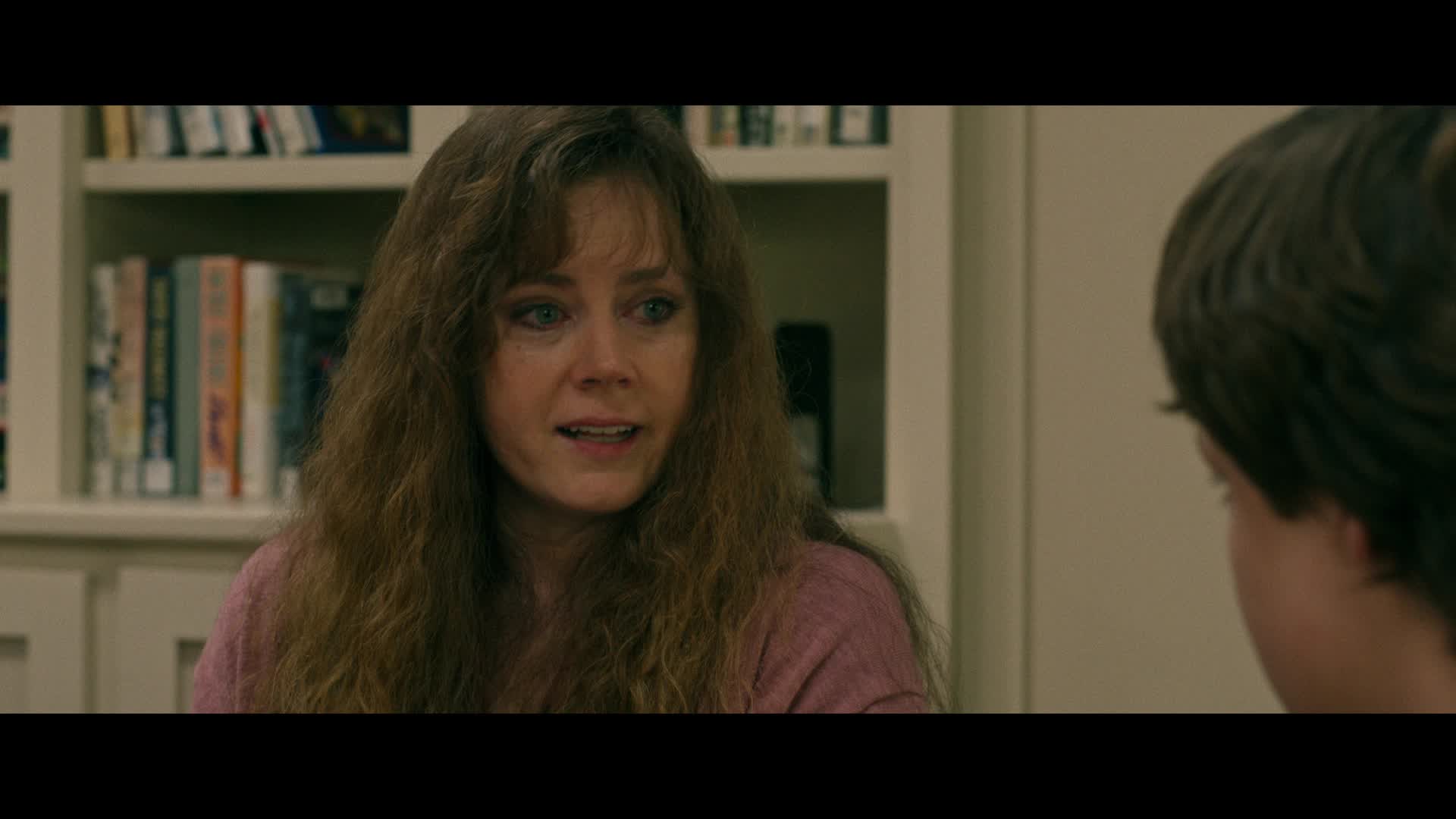Hillbilly Elegy (2020)

Hillbilly Elegy (2020) – A Powerful Exploration of Family, Poverty, and Identity
Part 1: A Story Rooted in Family and Struggle
“Hillbilly Elegy,” directed by Ron Howard and based on the memoir by J.D. Vance, is a deeply emotional and poignant film that delves into the complexities of family dynamics, poverty, and personal identity. Set against the backdrop of Appalachian Ohio, the movie chronicles the life of J.D. Vance (played by Gabriel Basso), a man who struggles to reconcile his working-class upbringing with his aspirations to escape the cycle of hardship that plagued his family. As Vance reflects on his past, the film takes viewers on a journey through the highs and lows of his childhood, shaped by a family that’s both loving and destructive.
The film’s strength lies in its honest portrayal of a family caught in the throes of addiction, poverty, and a generational struggle to break free from an environment that offers few opportunities. The movie is not just a personal journey for J.D. but a broader commentary on the systemic challenges facing people from rural America. From the very first scenes, we are introduced to a deeply flawed but resilient family. The impact of J.D.’s mother, Bev Vance (played by Amy Adams), who battles addiction throughout his childhood, is particularly significant. Amy Adams delivers a gripping performance, portraying a woman trapped in her own destructive cycles, torn between love for her children and the addiction that continually drags her back into chaos.
J.D.’s relationship with his grandmother, Mamaw (Glenn Close), becomes the emotional heart of the film. Mamaw, a tough, no-nonsense woman, serves as J.D.’s anchor throughout the tumultuous periods of his life. Her character is the embodiment of both love and hardship, and Glenn Close brings a remarkable depth to the role, making Mamaw a central figure in J.D.’s attempt to break free from his family’s cycle of dysfunction. The contrasting relationships within the family, especially the friction between J.D.’s mother and grandmother, paint a vivid portrait of generational trauma and resilience.
Part 2: Struggles with Addiction, Poverty, and the American Dream
At its core, “Hillbilly Elegy” is about the tension between personal ambition and the weight of one’s past. J.D.’s pursuit of a better life, which leads him to Yale Law School, is contrasted with the overwhelming sense of loyalty he feels toward his family. The film explores how the American Dream can be elusive for those born into poverty, where every step toward success is fraught with personal sacrifices and emotional turmoil.
The exploration of addiction in the film is both harrowing and poignant. Bev’s ongoing struggle with drug dependency highlights the cyclical nature of addiction and its ability to devastate families. While addiction is often depicted in media as a personal failing, the film adds nuance by showing how Bev’s behavior is also a consequence of her environment. Her inability to break free from addiction and provide a stable life for her children is portrayed not as a moral failure, but as part of the larger social and economic issues faced by her generation. The film doesn’t shy away from showing the damage addiction inflicts on relationships, but it also offers a glimpse of hope, suggesting that change is possible, even in the most dire circumstances.
J.D.’s quest for success, while deeply personal, is also a reflection of a larger societal issue – the gap between those who can escape poverty and those who remain trapped within it. His experience at Yale, with its stark contrast to his upbringing, shows the cultural and class divide that exists in America. His internal struggle between staying true to his roots and assimilating into the world of privilege is at the heart of the film. The duality of his identity as someone who wants to escape but also feels a deep connection to his working-class roots creates an emotional tug-of-war that resonates throughout the movie.
Part 3: Themes of Identity and the American Family
One of the most compelling aspects of “Hillbilly Elegy” is its exploration of identity – both personal and cultural. The film poses the question of whether it is possible to escape one’s past and what it means to be defined by where you come from. J.D.’s experience of trying to succeed in an environment where he feels like an outsider is a familiar one for many who strive to break the cycles of their families’ socio-economic status. The film also shines a light on the struggles faced by those from rural America, offering a rare and authentic look at the challenges of growing up in a place where economic opportunities are scarce and success feels out of reach.
As J.D. tries to reconcile his ambitions with his familial obligations, he is forced to confront the very essence of his identity. Is he simply a product of his environment, or can he forge a new path for himself, separate from the legacy of his family’s struggles? The movie tackles these questions with sensitivity and authenticity, allowing the audience to empathize with J.D.’s desire to move forward while remaining tethered to the past.
The portrayal of family in “Hillbilly Elegy” is also a central theme. The film explores how families can both be a source of support and a source of toxicity. J.D.’s love for his mother and grandmother is evident, yet he struggles to understand how their choices and behaviors have shaped his life. The complexities of love, loyalty, and resentment are depicted with remarkable emotional depth, making the film’s portrayal of family dynamics both relatable and heart-wrenching. It’s a story about trying to break free from the cycle of generational trauma, while also acknowledging that those very relationships shape who we are.
Part 4: A Cinematic Reflection on Socio-Economic Challenges
“Hillbilly Elegy” is not just a personal story; it is a lens through which we can examine broader socio-economic challenges in America. The film brings attention to the struggles of working-class America and the impact that poverty, addiction, and a lack of opportunity have on individuals and families. It highlights how systemic issues like class inequality and lack of access to education and healthcare perpetuate cycles of poverty, making it harder for people to break free from their circumstances.
The performances in the film are exceptional, particularly from Amy Adams and Glenn Close. Amy Adams portrays Bev with heartbreaking nuance, capturing the complexity of a woman trapped in a cycle of addiction, love, and self-destruction. Glenn Close, as Mamaw, delivers a masterclass in character acting, bringing both toughness and tenderness to the role of a grandmother who will do anything to protect her family. Their performances are deeply affecting, grounding the film in raw emotion and authenticity.
The film’s direction by Ron Howard also deserves praise for its ability to balance intimate, personal moments with the broader social commentary the story addresses. The pacing is deliberate, allowing the viewer to fully understand the emotional weight of J.D.’s journey. The flashbacks to J.D.’s childhood, intertwined with his adult life, provide a sense of continuity and development, giving the film a narrative structure that keeps the audience engaged.
In conclusion, “Hillbilly Elegy” is a powerful and moving film that offers a nuanced look at poverty, addiction, family, and identity. Through the lens of J.D. Vance’s life, it examines the struggles of rural America and the human desire to break free from the constraints of one’s environment. The film’s deep emotional resonance, coupled with exceptional performances, makes it a poignant reflection on the challenges that many people face in their journey to overcome adversity. While it may not provide easy answers, it offers a compassionate look at the complexities of the human experience.
Hashtags: #HillbillyElegy #AmyAdams #GlennClose #FamilyDrama #Poverty #Addiction #RuralAmerica #Identity #GenerationalTrauma #RonHoward
Related Movies: https://www.youtube.com/@ActionMovieReview96











